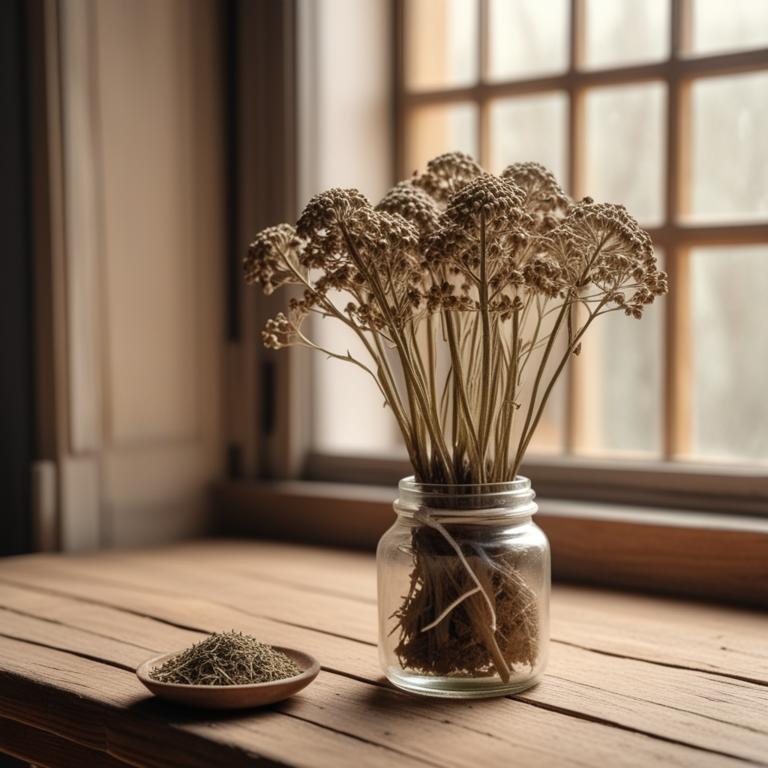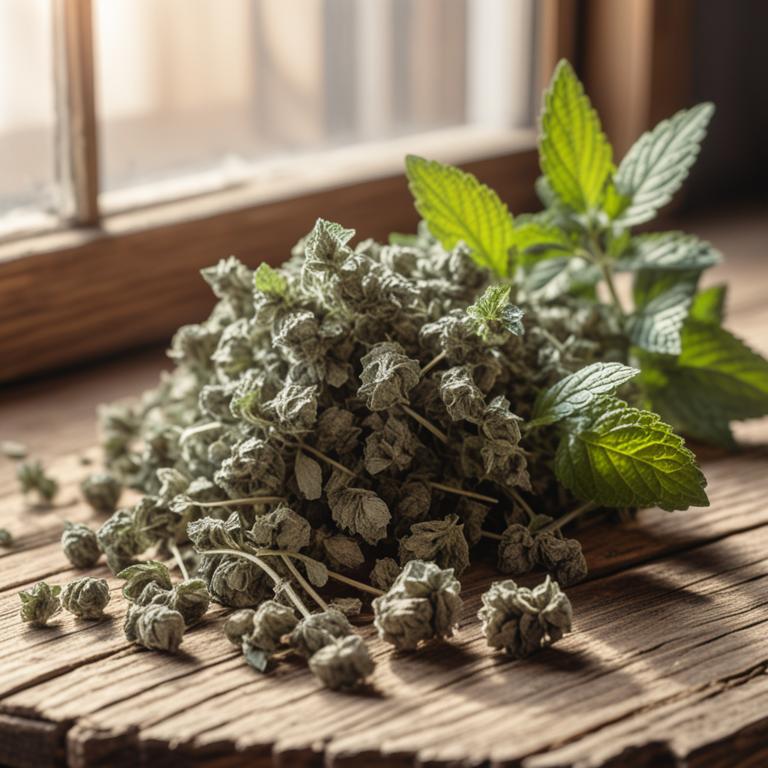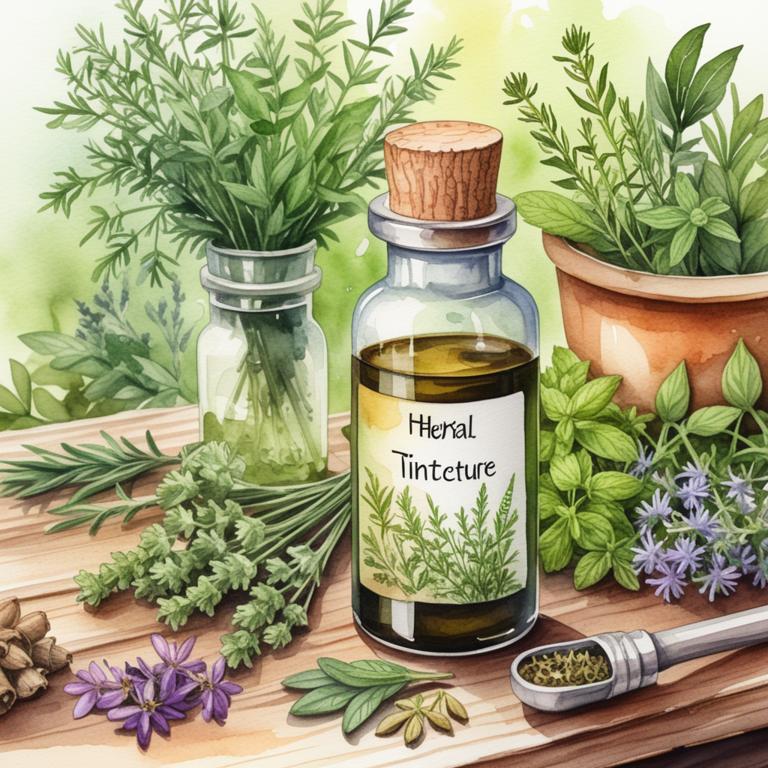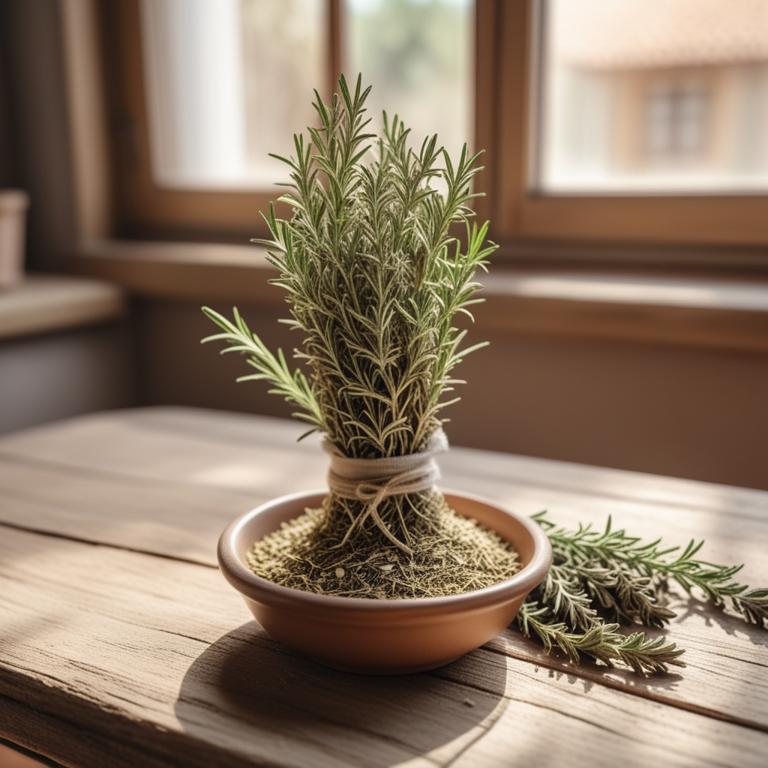Updated: Dec 1, 2024
Overcoming Lost Voice: Causes, Medicinal Herbs, and Herbal Preparations for Fast Recovery

Lost voice, also known as hoarseness, is a common problem that affects many people.
When you have lost voice, it can be painful and difficult to speak, eat, and even breathe. You might feel like you're constantly coughing, and your throat might feel scratchy and sore. Lost voice can disrupt your daily life and make you feel like you're missing out on social events and activities. The causes of lost voice are often related to strain on the vocal cords, which can be caused by overuse, shouting, or even screaming. Sometimes, it can be due to a viral infection, allergies, or acid reflux. When the vocal cords become inflamed, they can't vibrate properly, leading to a hoarse or raspy voice.
Fortunately, there are some herbal remedies that can help soothe and heal the vocal cords. One of the most effective herbs is slippery elm, which has anti-inflammatory properties that can calm the throat and reduce swelling. Licorice root is another popular herb that can help protect the vocal cords from damage and promote healing. Some people also use marshmallow root to soothe and calm the throat. To use these herbs, you can try drinking teas made from the roots and leaves. Simply steep the herbs in hot water, strain, and drink. You can also add honey to soothe the throat and make the drink more palatable.
Some people also take herbal supplements in capsule form, but be sure to talk to a doctor before trying any new remedies.
Table of Contents
What triggers a lost voice?
The main causes of lost voice are several factors that can affect the vocal cords and the surrounding areas.
Vocal Strain is one of the most common causes, which occurs when the vocal cords are overused or strained from excessive singing, shouting, or screaming. This can cause inflammation and irritation to the vocal cords, leading to a loss of voice. Another cause is Laryngitis, an inflammation of the vocal cords that can be caused by a viral or bacterial infection, or even by prolonged exposure to loud noises. When the vocal cords become inflamed, they can swell and become unable to vibrate properly, resulting in a loss of voice. Thyroid Issues, such as thyroid nodules or goiter, can also cause a loss of voice.
The thyroid gland is located near the larynx and can put pressure on the vocal cords, causing them to malfunction and lose their ability to produce sound. Laryngeal Cancer is a rare but serious cause of lost voice, which occurs when cancer develops on the vocal cords or in the surrounding tissues. This can cause the vocal cords to become paralyzed or irregularly shaped, leading to a loss of voice. Acid Reflux, also known as GERD, can cause a loss of voice by allowing stomach acid to flow up into the throat and irritate the vocal cords. This can cause inflammation and scarring to the vocal cords, leading to a loss of voice. Lastly, Laryngopharyngeal Reflux is a condition where stomach acid flows up into the larynx and throat, causing inflammation and irritation to the vocal cords and surrounding tissues.
This can lead to a loss of voice, as well as other symptoms such as hoarseness and throat pain.
How do herbs help alleviate the condition of lost voice?
Using herbs can be a great way to get your voice back when you're feeling hoarse.
One of the main benefits of using these herbs is that they can help soothe and calm your throat. This can be especially helpful if you've been shouting or singing loudly, or if you've been dealing with a cold or allergy.
The herbs can help reduce inflammation and irritation in your throat, making it feel more comfortable and easier to talk. They can also help to thin out mucus and phlegm, making it easier to clear out your throat and get your voice flowing again. Additionally, some of these herbs have antibacterial properties, which can help prevent infections and speed up the healing process.
By using these herbs, you can help your voice recover faster and feel more like yourself again.
What are the primary medicinal herbs used for treating lost voice?

If you've lost your voice, don't worry, there are some amazing herbs that can help you get it back.
One of them is Glycyrrhiza glabra, also known as licorice root. It's great for soothing and calming the throat, reducing inflammation, and promoting healing. When you're feeling sore and irritated, licorice root can bring some much-needed relief. Another herb that can help is Zingiber officinale, or ginger. It's a natural anti-inflammatory that can ease throat pain and discomfort. Ginger also has antibacterial properties, which can help fight off infections that might be contributing to your lost voice. When you're feeling hoarse and scratchy, ginger can help calm everything down.
Thymus vulgaris, or thyme, is another herb that's perfect for soothing a sore throat. It has antimicrobial properties that can help combat infections, and it's also a natural expectorant, which means it can help loosen and clear out mucus. This can be especially helpful if you're congested and can't seem to shake off a cough. For people who are really struggling to get their voice back, Panax ginseng can be a game-changer. It's an adaptogenic herb that can help your body cope with stress, which is often a major contributor to lost voice. Ginseng can also help boost your energy levels and improve your overall well-being, making it easier to recover from a lost voice. Finally, Echinacea purpurea is an herb that's often used to prevent illness, but it can also be helpful when you're trying to recover from a lost voice.
It has antioxidant properties that can help protect your body from damage, and it can also help stimulate your immune system to fight off any underlying infections.
What are the most popular herbal cures for lost voice?

If you've lost your voice, there are herbal preparations that can help soothe and heal your vocal cords.
A Decoction Tea made from herbs like licorice root, slippery elm, and marshmallow root can be very helpful. These herbs have anti-inflammatory properties that can calm your throat and reduce swelling, allowing you to regain your voice more quickly. Another option is a Gargling Tincture, which is a concentrated herbal liquid that you gargle with to help soothe your throat. A tincture made from herbs like thyme, eucalyptus, and peppermint can help loosen mucus and reduce inflammation, making it easier to talk and sing.
If you prefer to take your herbs in a more convenient form, you can try a Capsule that contains a mixture of soothing herbs like aloe vera, chamomile, and calendula. These herbs can help calm your vocal cords and reduce inflammation, allowing you to regain your voice more quickly. A Resin Poultice made from herbs like myrrh, comfrey, and plantain can also be very helpful in soothing your throat and vocal cords. This type of poultice can be applied directly to the affected area to provide intense heat and soothing relief. Finally, a Salve made from herbs like calendula, aloe vera, and chamomile can be applied topically to your throat to provide long-lasting relief and soothing comfort.
This can help calm your vocal cords and reduce inflammation, allowing you to regain your voice more quickly.
Additional Resources:
What herbs should you be cautious of if you have a lost voice condition?
If you've lost your voice, it's essential to be careful with certain herbs that can further irritate your throat or even make your condition worse.
Ephedra sinica, for instance, is known to be quite potent and can increase heart rate and blood pressure, which may not be suitable if you're already feeling stressed or uncomfortable. Cinchona officinalis, on the other hand, is often used to treat fever and other health issues, but its strong alkaloids can be harsh on the throat, making it harder to recover from a sore voice.
Aconitum carmichaelii, also known as monk's hood, is highly toxic and can be fatal if ingested in large amounts, so it's best to avoid it altogether, especially when you're not feeling well. Taxus baccata, or yew, is another toxic herb that can cause serious problems if mishandled, and its leaves are especially bitter and can be quite irritating to the throat. Lastly, Hyoscyamus niger, or henbane, contains scopolamine, which can cause dry mouth, dizziness, and other unwanted symptoms that may worsen your lost voice condition.
When you're feeling under the weather, it's always best to opt for gentle, soothing remedies that promote healing and relaxation, rather than risking further irritation or complications.
FAQ
Are there any specific herbs that can prevent lost voice?
Slippery elm is sometimes used to soothe a sore throat and prevent lost voice.
It's a natural herb that can help calm irritation and reduce inflammation. Licorice root is also believed to have similar properties.
Some people use them to help protect their voice when they're singing, talking loudly, or feeling under the weather.
Is it safe to use herbal remedies for lost voice during pregnancy?
Using herbal remedies for a lost voice during pregnancy can be tricky.
Some herbs like slippery elm and licorice root might help soothe your throat, but others like pennyroyal and blue cohosh can be too strong and even cause harm.
It's essential to choose gentle, well-known remedies and follow the recommended amounts to avoid any risks.
Are there any herbs that can reduce the frequency of lost voice?
Ginger and licorice root are sometimes used to help soothe a sore throat and reduce the frequency of lost voice. The anti-inflammatory properties in ginger may help calm the throat, while licorice root's demulcent properties create a protective barrier to shield the throat from further irritation.
Related Articles

Overcoming Numbness in Hands with Medicinal Herbs and Herbal Preparations

Breaking Down Depression: Causes, Symptoms, and Herbal Remedies

Motion Sickness Causes and Medicinal Herbs for Relief

Understanding Headaches: Causes, Herbal Remedies, and Natural Preparations

Restless Leg Syndrome: Understanding the Causes and Using Herbal Preparations






